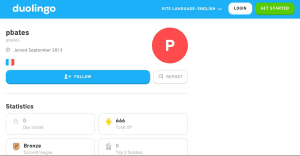Introduction: Why You Shouldn’t Trust Emails From Duolingo
In today’s digital age, even the most innocuous emails can harbor sinister intentions. If you’ve ever received an email from Duolingo, you might want to think twice before clicking that link. Recent leaks of private data to hackers have provided cybercriminals with the means to send highly targeted phishing emails. In this article, we unravel the dangers hidden within seemingly harmless emails from Duolingo, expose the tactics cybercriminals use, and provide you with actionable steps to fortify your online security.
1. How Did Attackers Get Your Information From Duolingo?
Duolingo, the language learning platform beloved by many, has a vulnerability that cybercriminals have exploited. By leveraging Duolingo’s Application Programming Interface (API), attackers managed to scrape the public data of millions of users. This breach of information, including email addresses, has been put up for sale on underground forums. Despite Duolingo’s assertion that this data was already publicly available, the potential risks are significant.

2. How Can the Duolingo Data Be Used Against You?
Those playful emails from Duolingo’s iconic owl mascot, Duo, may no longer be just an annoyance. Armed with your personal data, cybercriminals can craft convincing phishing emails that capitalize on your interactions with the platform. By prompting you to log in, attackers can seize your password, leaving you exposed to further attacks on your online accounts.

3. Scam Emails and Domain Trickery
To make matters worse, scammers can employ Duolingo-related domains that appear legitimate. Would you trust an email from duolingo.live or duolingo.tech? Attackers capitalize on these seemingly genuine domains, making it imperative to be vigilant.
4. Protecting Yourself From Duolingo Phishing Scams
Shielding yourself requires a combination of proactive measures. Begin by using services like “haveibeenpwned” to ascertain if your data is compromised. Unsubscribing from Duolingo emails is wise, as is generating distinct passwords for each service. Additionally, consider employing unique email addresses for various platforms to prevent your information from circulating in potential scams.
5. Duolingo Isn’t the Only Way to Learn a New Language
While Duolingo has faced scrutiny, there are alternative platforms for language learning that may suit your needs better. By diversifying your language-learning toolkit, you can enhance your skills while minimizing risks.
About the Author: David Rutland
David Rutland is a seasoned freelance writer with a background in print journalism and a deep appreciation for Free and Open Source Software. With an extensive history in Linux usage, David is a regular contributor to Linux Format magazine. His unique blend of tech insights and human experiences brings a relatable touch to his writing. When not exploring the digital realm, David enjoys off-grid travels across the British Isles with his dogs and caravan.
Conclusion
In the age of interconnectedness, caution is paramount. The innocent-looking emails from Duolingo’s owl could lead to disastrous consequences if not approached with skepticism. By understanding the tactics cybercriminals employ and implementing a robust defense strategy, you can safeguard your digital world from phishing traps. Remember, a moment of vigilance can prevent a future of regret.
Key Takeaways
| Key Points | Details |
|---|---|
| 1. Data Leak Vulnerability | Cybercriminals leveraged Duolingo’s API to scrape public data, including email addresses, of millions of users. |
| 2. Phishing Exploitation | Attackers can use your Duolingo activity to craft convincing phishing emails that lead you to disclose sensitive information. |
| 3. Beware of Scam Emails | Scammers create authentic-looking domains to deceive you. Be cautious of unsolicited emails, even if they appear to be from Duolingo. |
| 4. Protect Yourself with Vigilance | Utilize services like “haveibeenpwned,” unsubscribe from Duolingo emails, and create distinct passwords for different services. |
| 5. Explore Alternative Learning Platforms | While Duolingo has its merits, consider diversifying your language-learning tools to mitigate risks and enhance your proficiency. |
| 6. Author’s Insight | David Rutland, a proficient writer with a deep tech background, brings a human touch to his articles, making complex topics accessible and engaging. |
Comparative Table: Duolingo vs. Alternatives
| Feature | Duolingo | Busuu | Memrise |
|---|---|---|---|
| Learning Approach | Interactive and gamified lessons | Self-paced study with native speaker interaction | Flashcard-based vocabulary learning |
| Community Interaction | Limited peer interaction | Learning with native speakers and community interaction | Interaction with experts and chatbot |
| Lesson Customization | Limited customization of lesson plans | Expertly designed lesson plans with customization options | Interactive multimedia-rich lesson plans |
| Premium Features | Premium subscription for an ad-free experience | Subscription unlocks additional features | Subscription for extra features and chatbot |
| Language Variety | Offers a wide array of languages | Available in multiple languages | Covers multiple languages and vocabulary |
In a world where even harmless emails can conceal dangerous intent, it’s crucial to stay vigilant. Emails from seemingly trustworthy sources like Duolingo could be a ploy to steal your personal information. By understanding the risks, exploring alternatives, and employing robust cybersecurity practices, you can navigate the digital landscape with confidence. Remember, knowledge is your armor against online threats.












